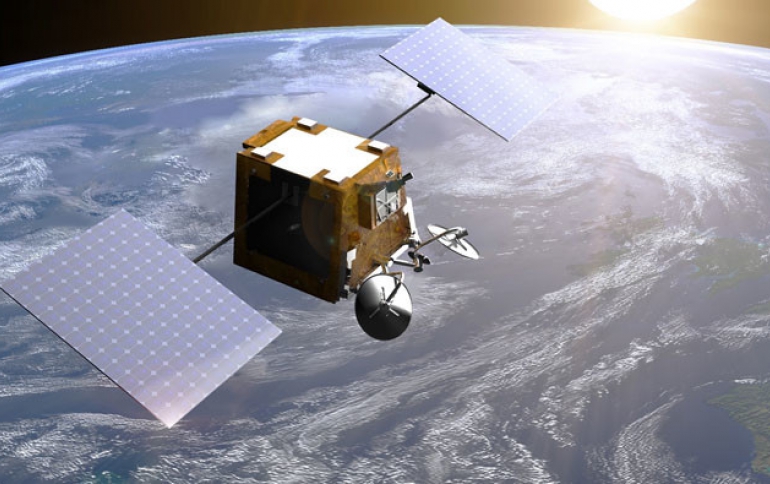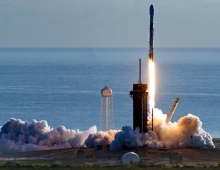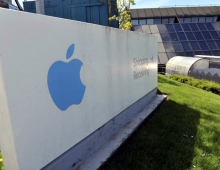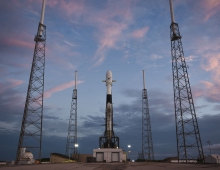
Airbus, OneWeb Aim for New Satellite Internet Era With First Launch
OneWeb, a company focused on delivering global communications through a satellite constellation, launched its first six satellites from Kourou, French Guiana, at 6.37 p.m.
The washing machine-sized satellites were carried by the Arianespace Soyuz rocket and were made by Airbus-OneWeb joint venture called OneWeb Satellites in Toulouse, France.
About two hours later, the Soyuz placed the satellites into a low Earth orbit, at an altitude of 1,000 km.
These first six OneWeb satellites are test units, and OneWeb will put them through their paces over the next six months to make sure they operate as expected.
This maiden flight will be followed by a total of 21 launches on behalf of the global satellite operator.

In June 2015, Arianespace and OneWeb signed an agreement for the deployment of Phase no.1 of the eponymous constellation, covering 21 launches with the medium-lift Soyuz to orbit the initial constellation satellites from three spaceports (Kourou in French Guiana; the Baikonur Cosmodrome in Kazakhstan; and Vostochny, Russia) through 2020.
OneWeb’s mission is to deliver global communications through a next-generation satellite constellation that will bring connectivity to everyone, everywhere. To achieve its purpose, OneWeb is building a network composed of Low Earth Orbit satellites that will provide high-speed, low latency services to a range of markets including aeronautics, maritime, backhaul services, community Wi-Fi, emergency response services and more. OneWeb will also be focused on connecting unconnected schools and working to bridge the digital divide for people everywhere.
With its system deployed, the OneWeb constellation will enable user terminals capable of offering 3G, LTE, 5G and Wi-Fi coverage.
OneWeb’s initial constellation will be compromised of approximately 650 satellites and will scale to more than 900 satellites as it grows to meet demand around the world. OneWeb will begin customer demos in 2020 and provide global, 24-hour coverage to customers in 2021.
This is part of a boom in private space investment and activity, fueled by a race to create a computing and data-communications shell surrounding the Earth. Current satellite orders would increase the amount of hardware orbiting the planet by at least five times over the next few years.
OneWeb is the brainchild of Wyler, an idealistic, relentless and oft controversial technology executive who has made it his mission in life to spread the internet to all corners of the globe. The company has raised more than $2 billion from Richard Branson’s Virgin Group, SoftBank Group Corp., Qualcomm Inc., Airbus SE and others to build an initial fleet of 650 satellites and eventually as many as 1,980.
OneWeb is about a year behind schedule and watched as Elon Musk’s SpaceX launched a pair of test satellites for a rival space internet service last year.
Both OneWeb and SpaceX still have to prove that their satellites work and that their antennas can deliver data at the speeds and prices they have promised.
Meanwhile, older operators like ViaSat, Eutelsat Communications SA, Intelsat SA and Inmarsat are investing in more powerful geostationary satellites, and two other ventures, Telesat and LeoSat Enterprises, are building their own constellations of low-earth orbit satellites.
Telesat is targeting 2022 for broadband services from nearly 300 satellites.
LeoSat Enterprises says it has already signed more than $1 billion in pre-launch provisional agreements for secure data transfers for global banks, telecoms providers and governments beginning in 2022.





















